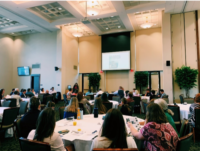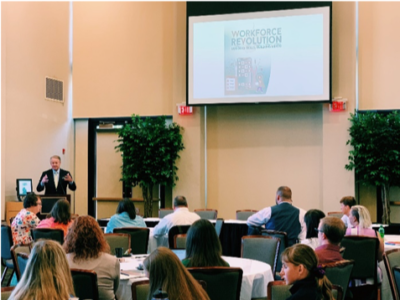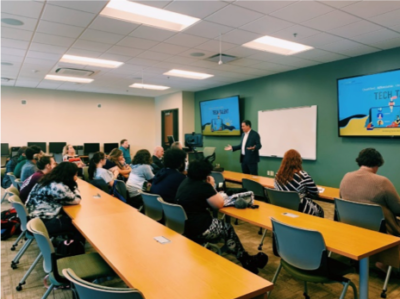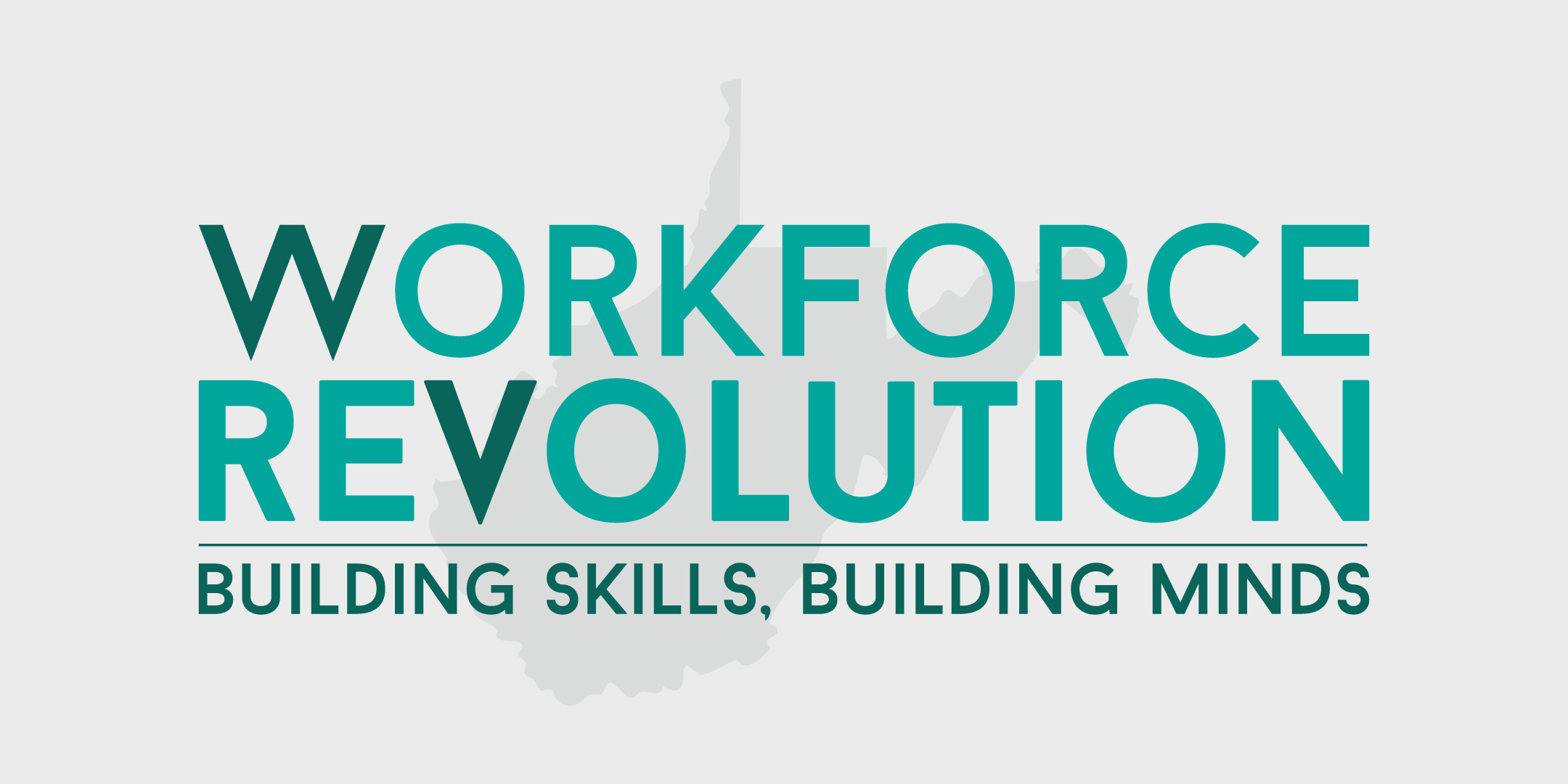Almost heaven, West Virginia; Blue Ridge Mountains, and a computer science requirement before graduating high school?! When the average non-West Virginian thinks about the state there is a 99 percent chance that John Denver’s “Country Roads” comes to mind, but there is so much more to my home state than a song (that was apparently written about the other Virginia in the first place).
Hi, my name is Caitlin Irr, and I’m the membership communications manager, and only West Virginia transplant, at ACT | The App Association. When I meet someone new in DC, one of the first questions I get asked is, “Where are you from?” When I say, “Huntington, West Virginia,” I get a sympathetic look or a comment that is anything but flattering of the state I called home from ages three to 22. And to be fair, I get it. If and when West Virginia makes national news, it’s usually related to the opioid crisis ravaging the state or something related to coal. But to me, a West Virginian, I know that my state is so much more than the headlines the average person sees.
Building Skills, Building Minds
Earlier this year, West Virginia Governor Jim Justice signed a bill into law requiring that students complete a computer science course before graduating high school. It is the first state in the country to have such a requirement, and this is no accident. As the Governor said, “for a long time, our state was 50th in just about everything. That’s why I’m proud that we’re the first state to make sure all of our students get a top-notch education in a subject as important as computer science.” And he’s right. A computer science education is critical to success in today’s app economy. Only one in every eight computing jobs in this field is filled —these jobs have high starting salaries and, typically, the ability to work remotely.
West Virginia is also home to amazing workforce development resources. Organizations like Generation West Virginia, New Force, CentralApp, and Tech Connect have fostered an amazing environment for folks who are proud to be from West Virginia and want to stay local, but with a 5.1 percent unemployment rate, they struggle finding careers (or right skills for the places who are hiring). Through training, retraining, assistance with job placement, or simply a community of like-minded, supportive individuals, West Virginia is well equipped to serve the developing workforce within the state.
Workforce reVoultion Workshop
 Last month, the App Association hosted the Workforce reVolution Workshop on Marshall University’s campus in Huntington, West Virginia. The event brought together West Virginia’s most engaged elected officials, thought leaders, educators, and students for a day of programming centered around workforce development and computer science education. Congresswoman Carol Miller kicked off our day with a warm greeting, and Mayor Steve Williams gave our keynote address. Mayor Williams discussed the opportunities associated with careers in computer science that currently exist in Huntington, telling attendees, “Opportunities do rest right here in this community. We’re competing in a worldwide marketplace.”
Last month, the App Association hosted the Workforce reVolution Workshop on Marshall University’s campus in Huntington, West Virginia. The event brought together West Virginia’s most engaged elected officials, thought leaders, educators, and students for a day of programming centered around workforce development and computer science education. Congresswoman Carol Miller kicked off our day with a warm greeting, and Mayor Steve Williams gave our keynote address. Mayor Williams discussed the opportunities associated with careers in computer science that currently exist in Huntington, telling attendees, “Opportunities do rest right here in this community. We’re competing in a worldwide marketplace.”
Following opening remarks, we hosted two panels:
Panel 1: The State of Play of Workforce Development and Computer Science Education During this panel, participants discussed the “who, what, when, where, why, and how” of workforce development and computer science education.
This panel included:
- Sean Hornbuckle, Delegate, West Virginia legislature
- Ralph King, Bit Source, App Association member company
- Kheng McGuire, Thought leader and founder, Coding program at Huntington High School
- Natalie Roper, Executive Director, Generation West Virginia
- Wook-Sung Yoo, Professor and Chair, Division of Computer Science, College of Information Technology and Engineering, Marshall University
Panel 2: Mind Crafters: An In-Depth Look at Computer Science Implementation in K-12 Schools
During this panel, participants—including students enrolled in Project Lead the Way Computer Science (PLTWCS)—discussed the challenges, benefits, and future of computer science education implementation in K-12 schools. Our student participants presented apps they created as part of the curriculum in PLTWCS, including an app used to track and record the dress code of Junior Reserve Officers’ Training Corps (JROTC) program at their school.
This panel included:
- Kathy D’Antoni, Associate State Superintendent of Schools, West Virginia Department of Education
- James Coble, STEM Coordinator, West Virginia Department of Education
- Tim Elliott, Coordinator, Office of Career Technical Education
- Tamara Westfall, Computer Science K-12 educator in West Virginia
- Bailey Barker, Lincoln County High School
- Gabe Yeoman, Spring Valley High School
 Our afternoon session was all about giving participants a hands-on experience. Marshall University’s College of Information Technology and Engineering provided the space and many of the amazing resources to make all three of our hands-on workshops a success.
Our afternoon session was all about giving participants a hands-on experience. Marshall University’s College of Information Technology and Engineering provided the space and many of the amazing resources to make all three of our hands-on workshops a success.
Workshop 1 was geared towards the existing workforce and high school attendees. The workshop kicked off with a presentation from Central App CEO Todd Cope about the benefits of a career in the field of computer science (including the ability to work from home and the nearly-six figure starting salary!!) and the work they do to fill open positions in the field. Jamie Adams, from App Association member company Bit Source, followed up with an interactive presentation on what an intro to coding course would look lik
Workshops 2 and 3 focused on our middle school attendees (we had more than 50!). Workshop 2 taught participants to create apps of their own. Using desktop computers, in conjunction with smartphone-like devices, participants created their own apps in just under an hour! During workshop 3, the students worked with robotics, virtual reality (VR), and enjoyed an interactive presentation from our partners at the NASA IV&V Education Resource Center.
 The success of the Workforce reVoultion Workshop is an exciting step in the long journey to the widespread implementation of computer science education, for all ages, and a stronger workforce. West Virginia was the first state in the United States to require a computer science credit prior to graduation, has several comprehensive programs related to computer science, and boasts robust extracurricular coding and robotics clubs. Organizations like CentralApp and Generation West Virginia are working hard to retain an energetic, sustainable workforce in the state, but so much more still needs to be done. There are still 1,000 unfilled computing jobs in West Virginia—that’s about three times the national average—and there are fewer AP exams taken in computer science than any other STEM subject area. In order for West Virginia to have a strong local economy, a vibrant workforce, and be a player in the booming app economy, industry, government, and everyone in-between must continue to work together.
The success of the Workforce reVoultion Workshop is an exciting step in the long journey to the widespread implementation of computer science education, for all ages, and a stronger workforce. West Virginia was the first state in the United States to require a computer science credit prior to graduation, has several comprehensive programs related to computer science, and boasts robust extracurricular coding and robotics clubs. Organizations like CentralApp and Generation West Virginia are working hard to retain an energetic, sustainable workforce in the state, but so much more still needs to be done. There are still 1,000 unfilled computing jobs in West Virginia—that’s about three times the national average—and there are fewer AP exams taken in computer science than any other STEM subject area. In order for West Virginia to have a strong local economy, a vibrant workforce, and be a player in the booming app economy, industry, government, and everyone in-between must continue to work together.
The App Association was proud to hold our first Workforce reVoultion event in Huntington, West Virginia, and we’re excited to continue to work with communities across the United States to promote a vibrant app economy.
